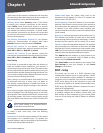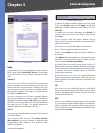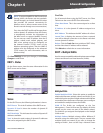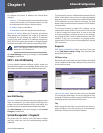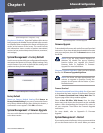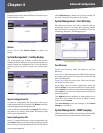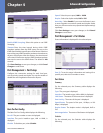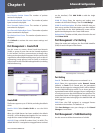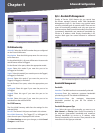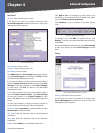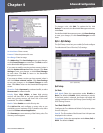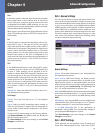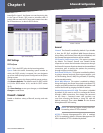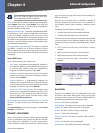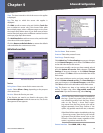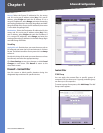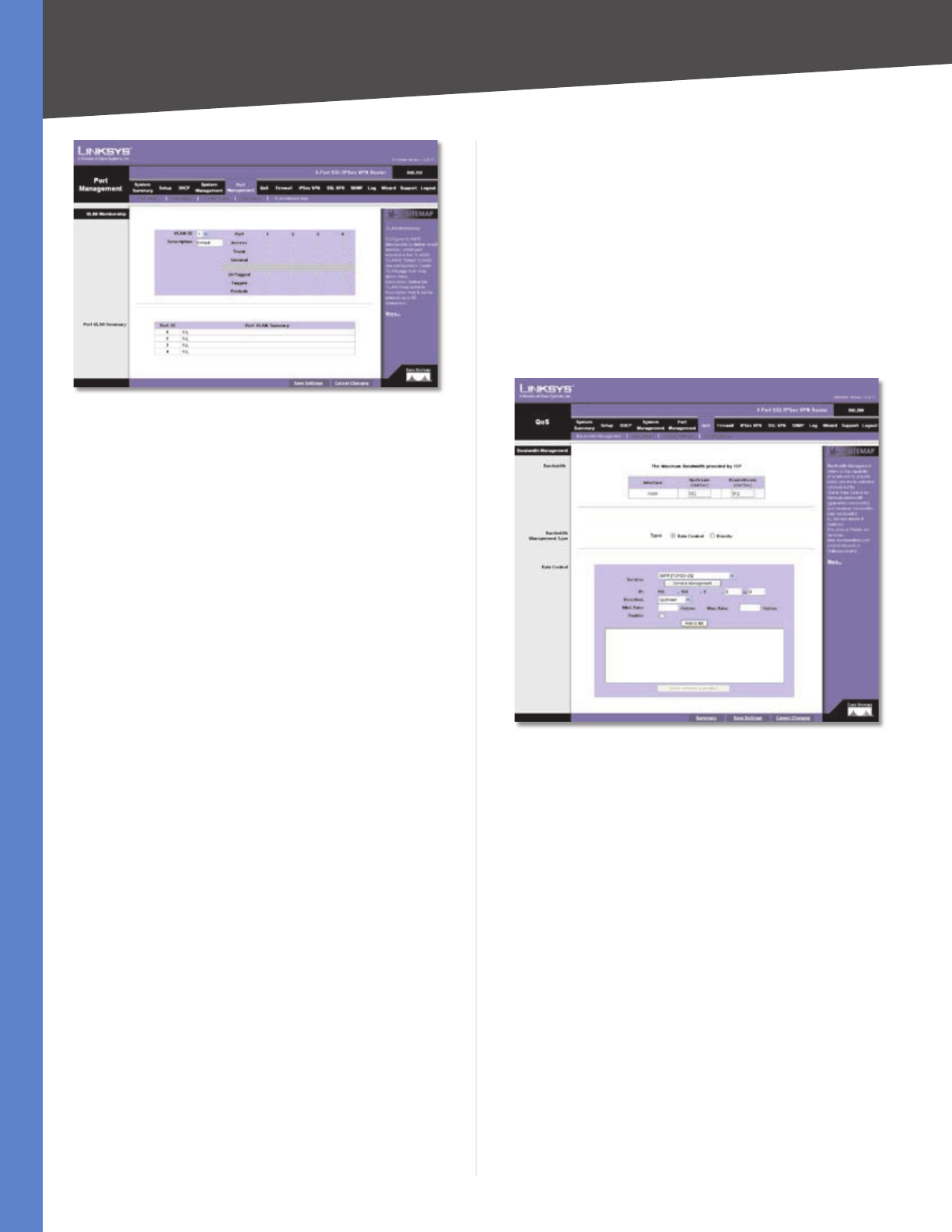
Chapter 4
Advanced Configuration
26
4-Port SSL/IPSec VPN Router
Port Management > VLAN Membership
VLAN Membership
VLAN ID Select the VLAN ID number that you configured
on the Create VLAN screen.
Description Enter the VLAN group name. You can use up
to 50 characters.
For the default VLAN 1, all ports will be set to Access mode
and all frames will be UnTagged.
For the Router’s four ports, select the appropriate mode:
Access Select this mode if you want the port to be
UnTagged or Excluded.
Trunk Select this mode if you want the port to be Tagged,
UnTagged, or Excluded.
General Select this mode if you want the port to be
Tagged, UnTagged, or Excluded.
For the Router’s four ports, select the appropriate port
type:
UnTagged Select this type if you want the port to be
UnTagged.
Tagged Select this type if you want the port to be
Tagged.
Exclude Select this type if you want the port to be
excluded from the selected VLAN.
Port VLAN Summary
The Port VLAN Summary table lists the settings for the
selected VLAN:
Port ID The Router’s LAN ports are listed in this column.
Port VLAN Summary The Tagged (T) or UnTagged (U)
status for each port is displayed in this column.
Click Save Settings to save your changes, or click Cancel
Changes to undo them.
QoS > Bandwidth Management
Quality of Service (QoS) features let you control how
the Router manages network traffic. With Bandwidth
Management (Layer 3), the Router can provide better
service to selected types of network traffic. There are two
types of functionality available, and only one type can
work at one time. Rate Control functionality is for minimum
(guaranteed) bandwidth and maximum bandwidth by
service or IP address, while Priority functionality is for
services. Both types can control inbound or outbound
traffic.
QoS > Bandwidth Management > Rate Control
Bandwidth Management
Bandwidth
Interface The WAN interface is automatically selected.
Upstream Enter the maximum upstream bandwidth
provided by your ISP. The default is 512 kbit/sec.
Downstream Enter the maximum downstream
bandwidth provided by your ISP. The default is
512 kbit/sec.
Bandwidth Management Type
Type Select the type of functionality you want to use,
Rate Control or Priority. Rate Control functionality is
for minimum (guaranteed) bandwidth and maximum
(limited) bandwidth by service or IP address, while
Priority functionality is for services. Then proceed to the
instructions for the type you selected.



